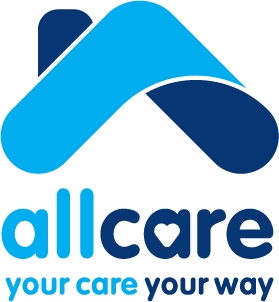6 tips on staying cool and safe this summer
Longer days, warm evenings and plenty of public holidays, summer is an enjoyable season for the whole family.
However, as temperatures rise, summer can be a high-risk time for members of our community – especially on days when temperatures reach well above 30 degrees. People with reduced mobility, chronic medical problems (especially kidney conditions), or who live alone may be at risk of experiencing heat-related health complications over the summer months. Discover our six tips and advice to ensure that you can enjoy all the pleasures of summer while keeping yourself cool, comfortable, and, most importantly, safe. Plus, find out how to prepare yourself for bushfire season.
1. PRIORITISE HYDRATION
Ensure you drink at least six to eight glasses of water daily. Hydration not only helps regulate your body temperature but also replaces fluids lost through perspiration. Consider adding a touch of zesty lemon or frozen berries and mint leaves for a natural boost of flavour.
2. STAY SUN-SAFE OUTDOORS
Use at least SPF50+ sunscreen
Wear a wide-brimmed hat
Carry a small umbrella as portable shade
Cover exposed skin with lightweight, light-coloured loose clothing such as linens
Seek out the shade
Protect your eyes with sunglasses
3. AVOID MIDDAY HEAT
Stay indoors or in the shade between 11 am and 3 pm to prevent heat exhaustion. Take it easy and keep strenuous activity to a minimum. Seek air-conditioned places such as public libraries and shopping centres if needed.
4. LOOK OUT FOR YOUR PETS
Your pets rely on you to keep them safe and comfortable during the summer months. Ensure they have plenty of fresh water and access to shade and shelter at all times. Limit outdoor activities on scorching days and never leave your pet unattended in a vehicle. Watch out for signs of overheating, such as excessive panting, drooling, lethargy and disorientation, and whilst it’s important to groom your pets, don’t shave their fur too short as it provides them protection from the sun. A supervised swim in water or shallow kiddie pool is a great way to let them cool off.
5. RECOGNISE HEAT STROKE
Heat stroke can be lifethreatening if left untreated and its symptoms are slightly different from heat exhaustion. They include:
Rapid pulse and fast, shallow breathing
Trouble speaking or slurred speech
Problems concentrating or coordinating movements
Dizziness, confusion, seizures or loss of consciousness
Sudden rise in body temperature
Dry, overheated, and potentially red skin, sometimes without perspiration
Dry, swollen tongue
Headaches, nausea or vomiting
If you think you, or someone else, might be suffering from heat stroke, ring 000, immediately.
6. CHOOSE COOL, REFRESHING FOODS
Skip hot dishes that heat up your home and body and enjoy easy-to-prepare options like fruit, salads, and sandwiches instead. Here are our top choices for hydration:
Watermelon
Strawberries
Grapefruit
Pineapple
Cucumbers
Celery
Radishes
Zucchini
Discuss summer-friendly meal planning with your Client Engagement Manager.
HOW TO PREPARE YOURSELF FOR BUSHFIRE SEASON:
NSW FIRE AND RESCUE’S TOP TIPS FOR STAYING SAFE
Get your smoke detectors checked regularly! Legally, you must have at least one working smoke alarm on each level of the home, placed between bedrooms and in living areas.
Don’t overload power points and powerboards. Only use fuses of recommended rating and install an electrical safety switch.
Regularly check electrical leads for damage and faults. Never use faulty electrical leads or appliances.
Store your electric blanket safely - roll, don’t fold. This prevents the wires breaking.
Before going to bed, turn off all electrical appliances at the powerpoint.
Use only authorised installers of fixed heating appliances. Oil, gas or wood heating units may require a yearly maintenance check.
If possible, in the kitchen keep a fire extinguisher and fire blanket placed near the exit. And make sure all the keys to locked doors are easy to access in a hurry.
Never leave burning candles or any open flame unattended.
LISTEN TO YOUR LOCAL ABC RADIO FOR ALERTS
ABC Illawarra: 97.3FM (Illawarra, Shoalhaven, Southern Highlands, Wollondilly)
ABC News on Radio: Illawarra - 90.9FM (Illawarra, Shoalhaven, Southern Highlands, Wollondilly)
103.5 FM Batemans Bay/Moruya
Visit the ABC Emergency website for live news and updates in your area: www.abc.net.au/emergency
WHO TO CONTACT IN THE CASE OF AN EMERGENCY
● Police, Fire or Ambulance
If anyone is in immediate danger you should dial 000.● State Emergency Service (SES)
If you require help in a flood, fire or tsunami you should contact the SES by dialling 132 500● allcare
If you need to discuss your situation or your needs please feel free to contact allcare on 1300 377 074.


